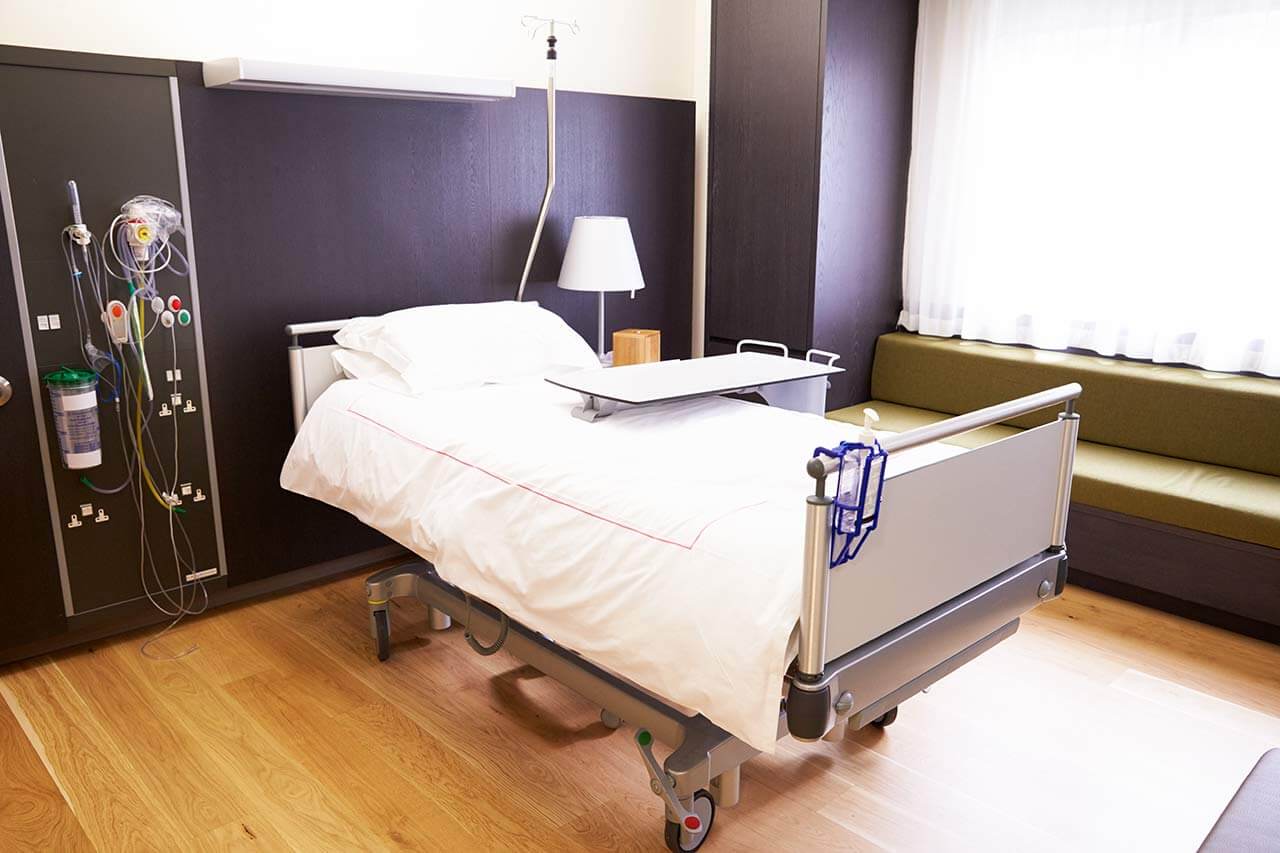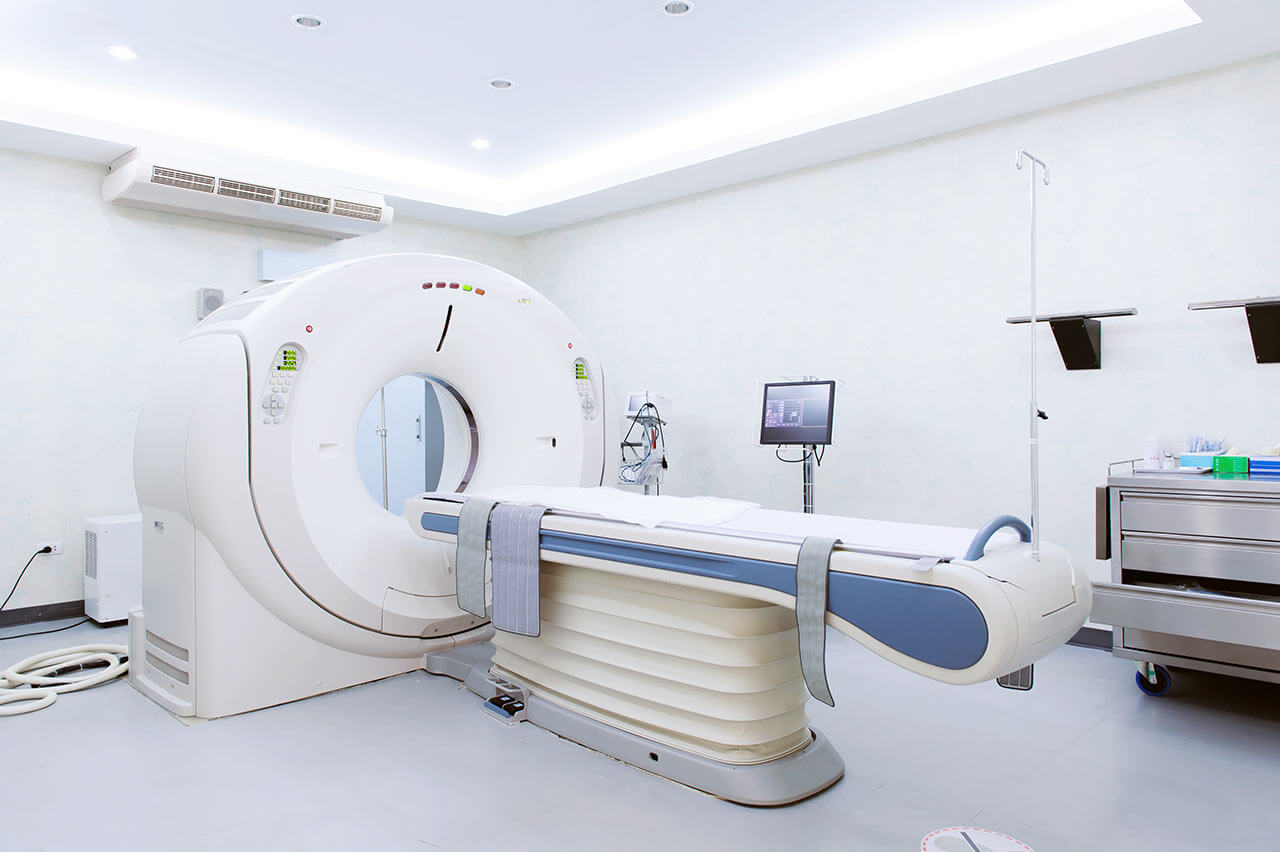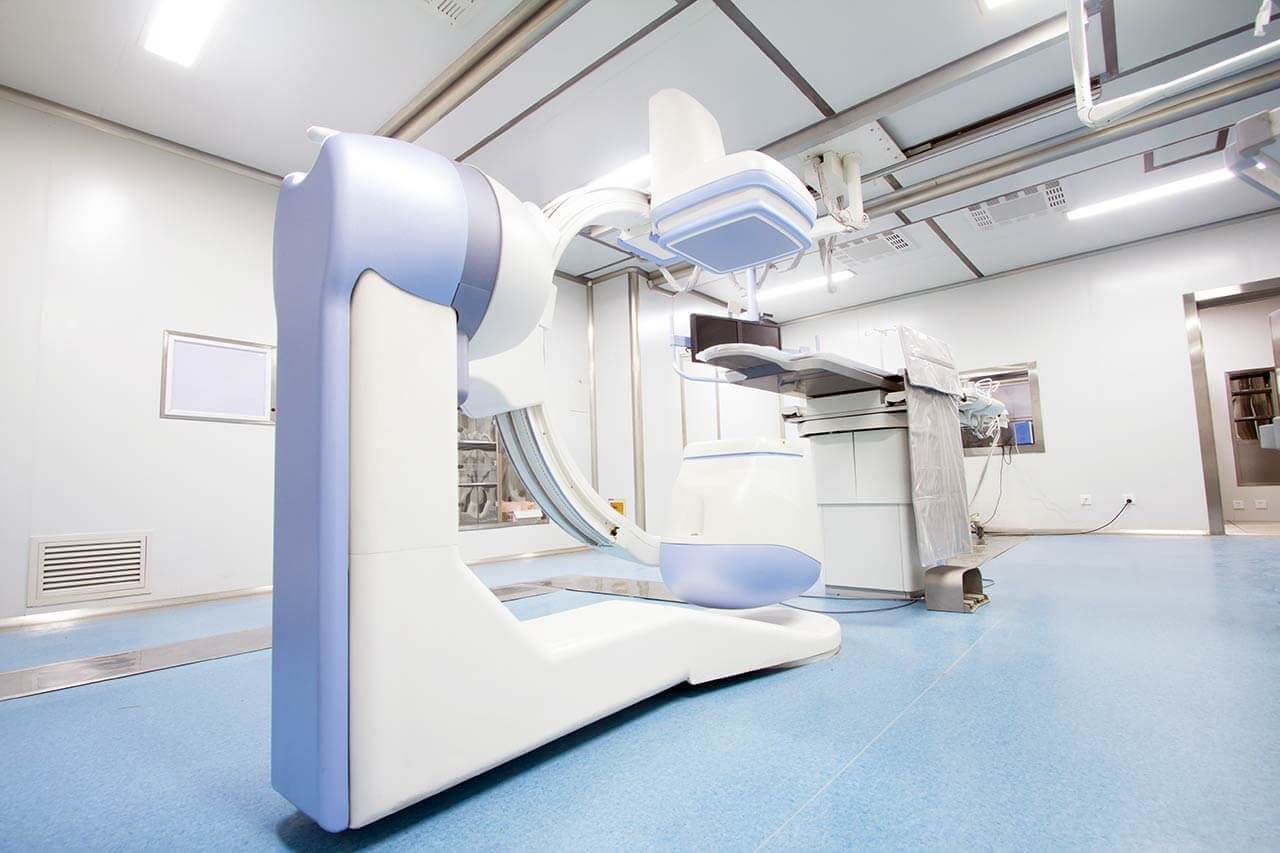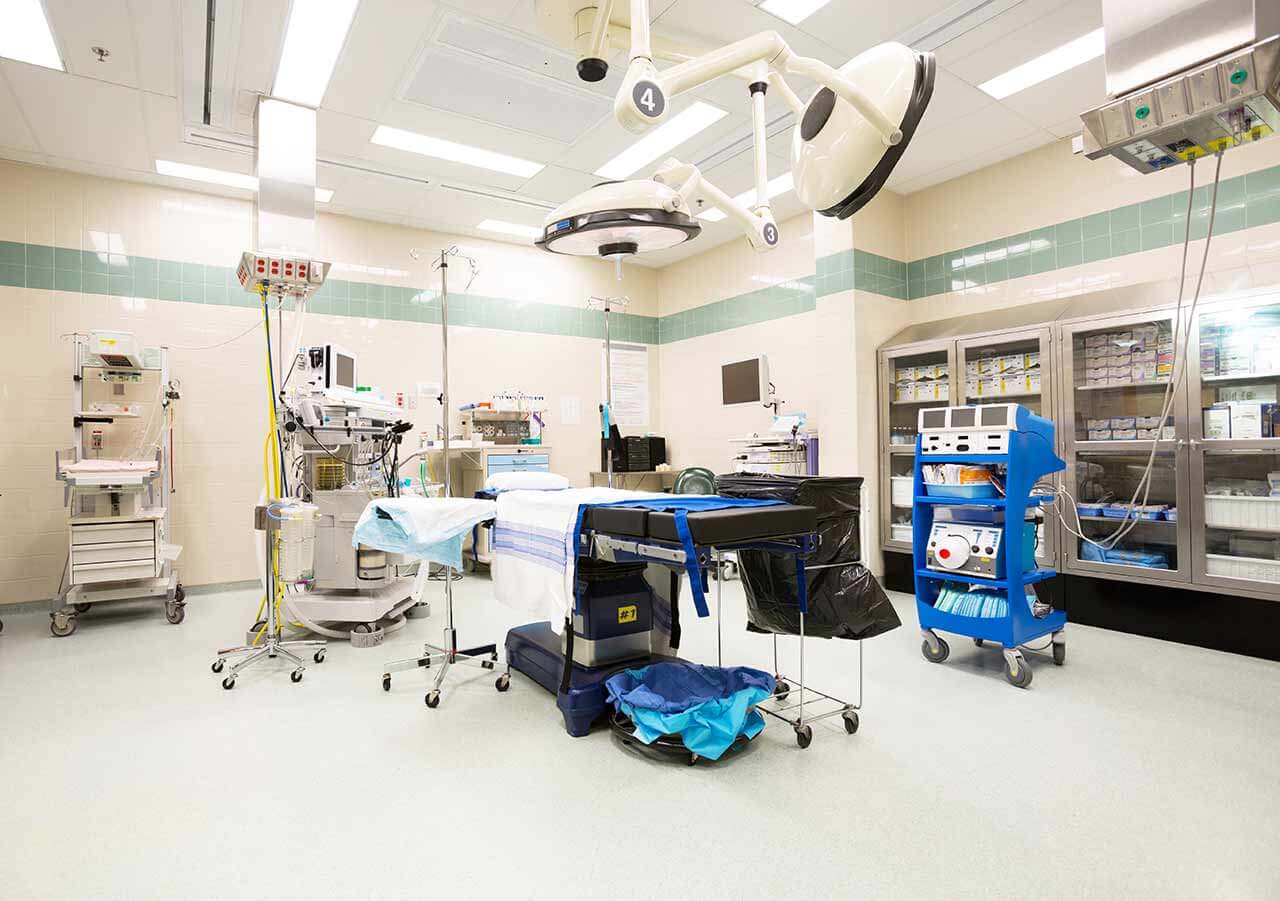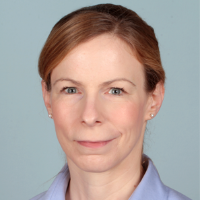
The program includes:
- Initial presentation in the clinic
- clinical history taking
- physical examination
- laboratory tests:
- complete blood count
- biochemical analysis of blood
- Lipid metabolism (HDL/LDL, cholesterol,
triglycerides Lip(a), homocysteine) - blood coagulation analysis (aPTT, PT, INR)
- inflammation indicators (CRP, ESR)
- metabolic status (uric acid, total glucose, HbA1c)
- cardiovascular disease risk markers
- kidney function test (creatinine, urea)
- TSH
- doppler/ duplex receptacles of lower extremities
- angio-MRI from aorta and of lower extremities
- duplex peripheral arteries
- preoperative care
- necrectomy and skin transplantation
- daily wound care
- vacuum dressing treatment
- symptomatic treatment
- control examinations
- the cost of essential medicines and materials
- nursing services
- full hospital accommodation
- developing of further guidance
Required documents
- Medical records
- US scan, MRI/CT scan (if available)
Service
You may also book:
 BookingHealth Price from:
BookingHealth Price from:
About the department
According to the Focus magazine, the Department of General, Abdominal and Vascular Surgery at the Charite University Hospital Berlin ranks among the top German medical facilities specializing in the treatment of bowel and lung cancer!
The department offers all the modern surgical options for the treatment of diseases of the abdominal cavity and blood vessels. The department's doctors have expert knowledge and vast experience in the treatment of colorectal cancer, stomach, esophageal, pancreatic cancers, liver metastases, inflammatory bowel diseases (diverticular disease, Crohn's disease, ulcerative colitis). Also, they specialize in the surgical treatment of vascular pathologies and thyroid diseases. The department is headed by PD Dr. med. Katharina Beyer.
The department's medical team provides first-class medical care using the very latest scientific achievements and demonstrates understanding of the needs and wishes of each patient. The excellent technical equipment plays a significant role in the successful clinical practice of a medical institution as well. The department offers modern operating rooms with high-precision computer equipment, monitoring systems, devices for robot-assisted surgery, etc. In addition, the department has a hybrid operating room.
The department's surgeons widely practice both classical surgical interventions and modern surical procedures, including minimally invasive surgery ("keyhole surgery") and robot-assisted surgeries (surgery using the da Vinci Surgical System). In the field of vascular surgery, the doctors also offer endovascular interventions. Due attention is paid to interdisciplinary cooperation, for example, with the Departments of Gastroenterology and Oncology. Thanks to cutting-edge equipment for endoscopic and radiological examinations, the department's specialists can make the most accurate diagnosis, determine the stage of the pathology and its localization, and also accurately plan the surgical treatment.
The main clinical focuses of the department include:
- Surgical oncology
- Bowel cancer
- Liver metastases
- Surgical techniques (for example, partial liver resection)
- Minimally invasive ablation techniques (for example, radiofrequency ablation, microwave ablation)
- Esophageal carcinoma
- Stomach cancer
- Recurrent rectal cancer
- Pancreatic cancer
- Thyroid cancer
- Surgical treatment of chronic inflammatory bowel diseases
- Crohn's disease
- Ulcerative colitis
- Abdominal surgery
- Sigmoid diverticulitis
- Gastroesophageal reflux disease
- Cholelithiasis
- Inguinal hernia
- Incisional hernia
- Coloproctological diseases (minimally invasive surgery, robotic interventions)
- Fecal incontinence
- Defecation disorders
- Hemorrhoids
- Rectal prolapse
- Anal fissures, fistulas, abscesses
- Anal, rectal tumors
- Vascular surgery
- Aortic aneurysm repair
- Minimally invasive removal of aortic aneurysm
- Open surgeries
- Treatment of peripheral arterial occlusive disease of the lower extremities
- Conservative treatment (drug therapy)
- Minimally invasive treatment techniques (for example, percutaneous transluminal angioplasty, stent implantation)
- Open surgery (in advanced stages of the disease)
- Treatment of carotid stenosis
- Treatment of thrombosis and postthrombotic syndrome
- Thrombolysis
- Thrombectomy
- Dialysis access formation in patients with kidney failure
- Treatment of varicose veins
- Thermal ablation
- Mechanical and chemical endovenous ablation
- Open surgical interventions
- Aortic aneurysm repair
- Other diseases and treatment methods
Curriculum vitae
Clinical Interests
- Treatment of esophageal cancer.
- Treatment of stomach cancer.
- Treatment of gastroesophageal reflux disease.
Research Interests
- Research projects on sepsis.
- Research projects in oncopathologies.
Memberships in Professional Societies
- German Society of Surgery (DGCH).
- German Society for General and Visceral Surgery (DGAV).
- Working Group on Minimally Invasive Surgery.
Photo of the doctor: (c) Charité – Universitätsmedizin Berlin
About hospital
According to the reputable Focus magazine, the Charite University Hospital Berlin ranks 1st among the best healthcare facilities in Germany!
The hospital is one of the largest and leading university medical complexes in Europe, and also consistently holds leading positions in the international medical arena. The Charite operates on the basis of the Faculty of Medicine of the Free University of Berlin and the Humboldt University of Berlin. Patients are offered modern diagnostics and treatment with the very latest methods, many of which were developed by professors and scientists of the medical complex. More than half of all German Nobel Prize winners in medicine and physiology, such as Emil von Behring, Robert Koch, and Paul Ehrlich, studied and worked at the Charite University Hospital Berlin. The medical complex includes more than 100 specialized departments and institutes, which helps to ensure that patients receive care in all existing medical specialties. The hospital has exceptional experience in treating complex clinical cases.
Each year, the hospital treats more than 137,800 inpatients and more than 787,700 outpatients. The hospital has a bed capacity of 3,293 beds. A huge medical team consisting of 5,670 scientists and doctors and more than 6,000 nurses work for the benefit of the patients. The main task of all specialists of the medical facility is to restore the patient's health or save his life in critical cases. The hospital has a friendly atmosphere where every patient feels care, respect and empathy.
The Charite University Hospital Berlin is generously funded by the German government, which is why it offers patients the latest generation of excellent equipment and comfortable infrastructure. The Charite medical complex is equipped with da Vinci robotic surgery systems, laser technologies, equipment for endovascular catheter-based interventions, neuronavigation devices, intraoperative monitoring systems, equipment for proton therapy available only in the most advanced medical centers in the world, and many other technologies. All these resources, combined with the experience and professional skills of the hospital's doctors, are the key to providing the most effective and safe treatment in accordance with the highest international medical standards.
The hospital is recognized with a huge number of quality certificates, including DIN EN ISO 9001:2015, certificates from the German Cancer Society (DKG), the German Society for General and Visceral Surgery (DGAV), the German Society for Thoracic Surgery (DGT), the German Hernia Society (DHG), and the ERAS Society.
The Charite University Hospital Berlin is a benchmark in the European healthcare system. Patients therefore receive impeccable medical service, quality care, and personalized service that puts the patient and their individual needs first.
Photo: (с) depositphotos
Accommodation in hospital
Patients rooms
The patients of the Charite University Hospital Berlin live in comfortable rooms made of modern design. Each room is equipped with an ensuite bathroom with a toilet and a shower. The standard room furnishing includes an automatically adjustable bed, a bedside table, a wardrobe for storing clothes, a table and chairs for receiving visitors, and a TV. If desired, Wi-Fi access can be provided. The hospital also offers enhanced-comfort rooms.
Meals and Menus
The patient and his accompanying person have a daily choice of three menus. If for any reason, you do not like the food, you will be offered an individual menu. Please inform the medical staff about your dietary preferences before the treatment.
Further details
Standard rooms include:
Religion
Religious services are available upon request.
Accompanying person
During the inpatient program, an accompanying person may stay with you in a patient room or at the hotel of your choice.
Hotel
During the outpatient program, you can live at a hotel of your choice. Managers will help you to choose the most suitable options.
The hospital offers a full range of laboratory tests (general, hormonal, tests for infections, antibodies, tumor markers, etc.), genetic tests, various modifications of ultrasound scans, CT scans, MRI and PET / CT, angiography, myelography, biopsy and other examinations. Treatment with medications, endoscopic and robotic operations, stereotaxic interventions is carried out here, modern types of radiation therapy are also used. The hospital offers patients all the necessary therapeutic techniques.
- Proton therapy
- CyberKnife treatment
- Hyperthermic intraperitoneal chemotherapy (HIPEC)
- PSMA therapy with Lutetium-177
- Joint replacement in adults and children
These are oncological diseases, benign neoplasms of the brain and spinal cord, heart valve defects, diabetes mellitus and its complications, joint diseases and other pathologies.
- Neurosurgery
- Oncology
- Plastic and reconstructive surgery
- Interventional radiology
- Proton therapy (Proton Therapy Center BerlinProtonen)
The medical team includes more than 4,225 highly qualified scientists and doctors.
